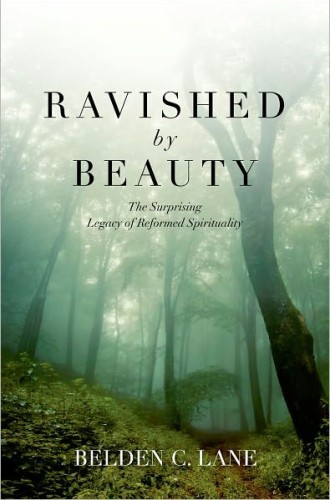Ravished by Beauty, by Belden C. Lane
In this splendid book Belden Lane has made a double contribution—to the reordering of our perspectives on creation and to our understanding of the Reformed tradition as a contributor to this reordering. A nature lover, hiker and camper as well as a first-rate scholar, he combines a passion for sensitive stewardship of creation with profound insight into the nature perspectives of Reformed spirituality and into the interconnections between Reformed spirituality and the broader stream of world spirituality as they both relate to creation.
Readers not well acquainted with Calvin or the Reformed tradition may register even more surprise than Lane himself confesses about his discovery, for a quite different slice of doctrine—double predestination and God's absolute sovereignty—has dominated popular thinking about Calvin's theology. To interpret Reformed spirituality from that angle overlooks another side of Calvin's central teaching, one much closer to what we find in the writings of the great contemplatives of earlier centuries, such as Gregory of Nyssa, Augustine, Bernard of Clairvaux, Bonaventure and others who posited an intimacy between God and creation.
Persons who have had Dort Calvinism's five points drilled into them will experience some shock when they read Lane's account of Calvin's nature-embracing theology. Professor of theological studies, American religion and history of spirituality at St. Louis University, Lane points out that Calvin viewed the world as a theater of God's glory and connected the awesome mystery of the cosmos with the mystery of God's inner life as the Trinity.





